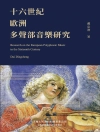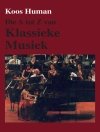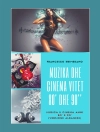From the Napoleonic Wars to the genocide of the Tutsis in Rwanda, via the great world conflicts of the 20th century, Music and Postwar Transitions in the 19th and 20th Centuries is the first book to highlight the significance of ‘postwar transitions’ in the field of music and to demonstrate the influence that musicians, composers, critics, institutions, and publics have had on the period that follows conflict. Leading historians, political scientists, psychologists and musicologists explore the roles of music and culture in demobilization, reconstruction, memory, reconciliation, revenge, and nationalist backlash. Moving beyond the popular conception of music as an agent of peace, this study reveals music’s more complex and ambivalent role in the process of transition from war to peace.
Tabla de materias
List of Illustrations
Foreword
Jay Winter
Introduction: Rethinking post-war transitions from a musical perspective
Anaïs Fléchet, Martin Guerpin, Philippe Gumplowicz, Barbara L. Kelly
Part I: Reconstructing the Music World
Chapter 1. Emerging from the turmoil: Georges Bizet in the early 1870s
Hervé Lacombe
Chapter 2. A Post-Revolutionary Musical Order: Mexico, 1910-1930
Pablo Palomino
Chapter 3. First Concerts on Familiar Ground? The Post-War International Comebacks of the Vienna and Berlin Philharmonics, 1947/48
Friedemann Pestel
Part II: A gradual demobilisation: music, cultures of war and national imaginations
Chapter 4. Discourse on music and the post-war transition: The case of France after the Franco-Prussian conflict of 1870-1871
Emmanuel Reibel
Chapter 5. Singing about war and the enemy after a conflict: Two post-war transitions in France (1871, 1914-1918) at the café-concert and the music hall
Martin Guerpin
Chapter 6. From Cœuroyto Céline: Popular music in the ‘war of good taste’ during the false post-conflict transition period, 1940-1942
Philippe Gumplowicz
Chapter 7. Wars, Ethnic Conflicts and the Political Use of Folk Music
Michael Wedekind
Part III: Memory, mourning and commemoration
Chapter 8. Béranger’s Napoleonic songs: mourning, memory and the future
Sophie‑Anne Leterrier
Chapter 9. Paul Hindemith’s Minimax and the Trauma of War
Lesley Hughes
Chapter 10. A transatlantic repertoire of resistance and mourning in the post-war years: The songs from the ghettos and camps collected by Shmerke Kaczerginski (Vilnius, New York, Buenos Aires)
Jean-Sébastien Noël
Chapter 11. Singing the unspeakable in Rwanda in the summer of 1994: Music in the context of the genocidal abyss through a portrait of the artist
Benjamin Chemouni and Assumpta Mugiraneza
Part IV: Music for peace and reconciliation?
Chapter 12. ‘Congress never works better than when it dances’: Music, Peacemaking, and Congress Diplomacy, 1814-1856
Damien Mahiet
Chapter 13. Internationalism and Musical Exchange in post-World-War 1 Europe
Barbara L. Kelly
Chapter 14. Music and peace‑building? The creation of the International Music Council (1946-1950)
Anaïs Fléchet
Postface: The Quest for Harmony?Music and post‑war transitions from international perspective
Jessica Gienow-Hecht
Sobre el autor
Anaïs Fléchet is Associate professor in International History at the University Paris-Saclay, and member of the research team Centre d’histoire culturelle des sociétés contemporaines. Her research focuses on music, international history, Brazil and the Global South.












